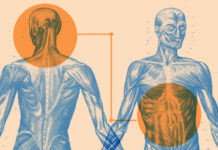New Evidence for Brain-Gut Link in Depression and Quality of Life
The first ever population-level study of the brain-gut connection in humans finds evidence for a link between gut bacteria and mental health.
Outdoor Education Tied to Psychological and Academic Benefits
How the satisfaction of basic psychological needs (BPN) in outdoor education environments can peak student interest and boost intrinsic motivation.
Antidepressants, Pregnancy, and Autism: Why Wouldn’t Antidepressant Chemicals Affect a Developing Baby’s Brain?
This week another study was published showing that SSRI antidepressant use during pregnancy is associated with increased rates of autism in the children. By my count, this is now the tenth study on this topic and it follows on the heels of previous studies – all of which found links between SSRI antidepressant use in pregnancy and autism in the offspring. Most of these studies were recently reviewed by Man, et al, who also concluded that SSRI antidepressant use during pregnancy is associated with autism in the children. So we now have numerous studies in different human populations all showing a link between SSRI use in pregnancy and autism in the children. Yet, much of the news and blogosphere focus on casting doubts about these findings. What is going on here?
Mental Health Documentary “Healing Voices” Premiers Across 130 Communities in 8 Countries
The producers of “Healing Voices” ‐ a new social action documentary about mental health ‐ are releasing the film via community screening partners in...
More Physical Activity-Based Mental Health Interventions Needed in Schools
What physical activity-based programs are being implemented in schools, how are they being researched, and what kind of impact have they made?
Drug Detailing More Influential than FDA Approval
FDA approvals are less influential on prescribing patterns than pharmaceutical sales marketers are, according to a study in Health Affairs. University of California and...
The Role of Racial Bias in the Overdiagnosis of Schizophrenia
Researchers detect disparity between white and African American patients diagnosed with schizophrenia when symptoms of a mood disorder are present.
New Report Points to Gaps in the Evidence for Pediatric Bipolar Disorder
A new report on pediatric bipolar critically examines the current evidence base and calls for more research before the diagnosis is used.
Early Attachment Deprivation Predicts ADHD Symptoms
A study in Social Psychiatry and Psychiatric Epidemiology finds that in a sample of 641 adopted adolescents, an increase in the level of ADHD...
“Social Factors Influence Schizophrenia?”
PsychCentral covers new research linking social deprivation, population density and inequality with higher rates of psychotic symptoms and diagnoses for schizophrenia. “This is important because other research has shown that many health and social outcomes also tend to be optimal when societies are more equal.”
The First Ever USA Olympic Gold Medal in Judo – and a Recovery Story
This morning Kayla Harrison won the first ever Olympic gold medal in the history of USA Judo. Kayla has overcome many, many obstacles on...
Social Adversity and Crime Victimization Increase Risk of Psychotic Experiences Five Fold
Researchers parse out factors within urbanicity that leads to risk for psychotic experiences.
Minimal Evidence for Disruptive Mood Dysregulation Disorder in Childhood
Researchers offer a critical take on the inclusion of the Disruptive Mood Dysregulation Disorder in the DSM-V.
How Pharmaceuticals Sell A.D.H.D.
Dr. Aaron Kesselheim of Brigham & Women's Hospital analyzes several ads for A.D.H.D. medications for the New York Times to see how they play...
“Is the Drive for Success Making Our Children Sick?”
In the SundayReview section of the New York Times Vicki Abeles discusses Stuat Slavin’s research on depression and anxiety in US schools. “Many of the health effects are apparent now, but many more will echo through the lives of our children,” says Richard Scheffler, a health economist at the University of California, Berkeley.
New York Times Issues Correction on RAISE Study Report
Last Tuesday, The New York Times and several other outlets (including Mad In America) reported on the highly-touted results of a study on psychosocial treatment for patients diagnosed with schizophrenia. Now, claims made about the study, which the ‘Times called “the most rigorous trial to date,” are coming under increased scrutiny.
Researcher Critiques Misleading Media Coverage of Lancet Antidepressant Meta-Analysis
The BMJ’s clinical editor takes issue with uncritical media coverage of antidepressant network meta-analysis, outlining reporting missteps.
REFOCUS Psychosis Recovery Intervention Ready for Trials
A new pro-recovery manualized intervention – called the REFOCUS intervention – has been developed and will now be evaluated in a multisite randomized control trials. The strengths-based intervention, which focuses on promoting relationships, is outlined in the latest issue of the British Journal of Psychiatry.
“Can We Please Stop Pretending Marijuana is Harmless?”
“Underscoring the incredible momentum to legalize marijuana is the misconception that the drug can’t hurt anybody,” Dr. Sushrut Jangi writes in the Boston Globe. “It can, especially young people.” He suggests that the biochemistry of marijuana effects "systems ordinarily involved in healthy behaviors like eating, learning and forming relationships” and “throws the finely tuned system off balance.”
Valproate Linked to Decreased Brain Volume in Children Diagnosed with Bipolar Disorder
Researchers find that valproate decreases brain volume in a region associated with emotion processing across all participants.
Expressed Emotion in Families of 1-year-old Children
This study, in Child: Care, Health and Development, adds to the research that "high levels of expressed emotion (EE) in parents have been found...
Tailoring Teaching for Temperament Improves Engagement
"A classroom program that helps teachers adapt their interactions with students based on individuals' temperaments may lead to more student engagement in kindergarten, more...
Your Instagram Posts May Hold Clues to Your Mental Health
From The New York Times: New research suggests that Instagram users who have been diagnosed with depression tend to post darker, bluer, and grayer photos...
‘ADHD’ and Dangerous Driving
In former times, children who were routinely inattentive and impulsive were considered to be in need of training and discipline. By and large, school teachers and parents provided this. In fact, the training was usually provided before the matter even became an issue. Today these children are spuriously and arbitrarily labeled as ill, and are given pills. At the present time the pharma-psychiatric system is being widely exposed as the spurious, destructive, disempowering fraud that it is. Organized psychiatry is responding to these criticisms not by cleaning up its act, but instead by increasing its lobbying activity in the political arena.
Families Sue Health Insurers to Cover Wilderness Therapy
From The Boston Globe: An increasing number of families are filing lawsuits against insurance companies that refuse to cover wilderness therapy for their children's mental...




















